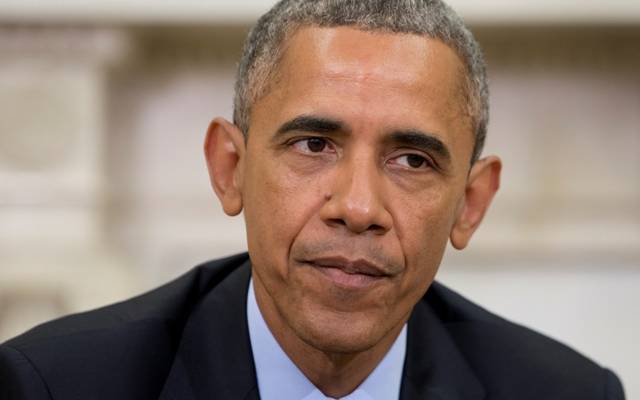In a letter to journalist Jeffrey Goldberg, Israeli intelligence expert Yossi Kuperwasser analyzes US President Obama’s remarks in Goldberg’s recent interview, pointing to what he believes to be the president’s limited understanding of the Middle East.

Yossi Kuperwasser. (Flash90)
In an interview with The Atlantic last month, US President Barack Obama defended his public criticism of Israel as being in the best interests of the Jewish state while insisting that a deal with Iran poses no danger to Israel or to the Arab Gulf states.
Journalist Jeffery Goldberg, who wrote the interview, received a comprehensive response from Gen. (res.) Yossi Kuperwasser, an intelligence expert who served until recently as director-general of the Ministry of Strategic Affairs.
His opinions, categorized by Goldberg as “more-or-less a mainstream Israeli viewpoint,” deserved airing, according to the journalist, who nevertheless agrees “with only 46 percent of it.”
He published the critique in its entirety.
“First, let me stress the shared values that anchor the US-Israel relationship, as well as the gratitude I and every Israeli feel for the president’s unwavering support for our country,” Kuperwasser began. As for the ongoing disagreements between the American leader and the Israeli prime minister, “we’ve gotten used to the criticism, and our relationship is strong enough to endure it.”
A number of Obama’s statements during the Atlantic interview as well as in his recent address at Washington’s Adas Israel synagogue, however, “betray a lack of understanding of both the past and present.”
For instance, “Moshe Dayan and Netanyahu, for one, were not that different. Both were eager for peace, but at the same time realistic about the need for security due to the Palestinian refusal to accept the Jewish state. Dayan opposed a retreat to the 1967 borders…. Obama also referenced Golda Meir, who famously denied the existence of the Palestinian people.”
Obama’s Misplaced Anger
Obama’s anger toward Netanyahu is misplaced, especially given his extraordinary lack of criticism of Palestinians for “far more egregious behavior,” he continued. “The Palestinians, after all, are the ones who refused to accept the president’s formula for extending the peace negotiations. It is Mahmoud Abbas and the Palestinian Authority (PA) who have called for ‘popular resistance,’ which has led in recent years to stabbings, stonings and attacks with cars and Molotov cocktails against Israelis.”
With all this, all the president had to say…about the Palestinians was that they “are not the easiest of partners.”
“Rather than recognizing how fundamentally different Palestinian political culture is, the president offered slogans about how Palestinian youth are just like any other in the world. This is a classic example of the mirror-imaging—the projection of his own values onto another culture—that has plagued most of his foreign policy,” Kuperwasser explains.
“Does it make sense for Israel—in the face of an aggressive Iran, the rise of Islamic terror organizations across the Middle East, and the fragmentation of Arab states—to deliver strategic areas to the fragile and corrupt PA, just to see them fall to extremists?” he asks.
Optimism vs. Realism
“So why does Obama pick on Netanyahu and not on Abbas?” The most likely reason, Kuperwasser says, is directly related to a conflict in the West between two schools of thought, both dedicated to defending democratic and Judeo-Christian values: optimism versus realism.
“Obama is a remarkable proponent for the optimist approach,” while “Netanyahu, on the other hand, is a realist. Due in part to Israel’s tumultuous neighborhood, he has a much more skeptical attitude of Islamists, such as the Muslim Brotherhood and Iranian President Rouhani’s government.”
“Western realists worry that optimists are actively aiding Islamists in the naïve hope that they will block out the extremists…. To those who face an existential threat, Obama’s argument sounds appalling,” the general states.
The Consequences of Obama’s Idealism
Even though Israel, under Prime Minister Netanyahu, remains committed to the formula of “two states for two peoples, with mutual recognition,” the implementation of this idea at this point is irrelevant, Kuperwasser asserts. The PA’s poor governance and the general turmoil in the Middle East render any establishment of a Palestinian state at this point in time unrealistic.
“President Obama admitted as much, reluctantly, but continued to criticize Netanyahu instead of betraying his optimist paradigm.”
“But while Obama and the optimists offer their critiques, Netanyahu and the realists will be on the ground, living with the consequences the optimists have wrought,” Kuperwasser concludes.
By: United with Israel Staff
Do You Love Israel? Make a Donation to Show Your Support!
Donate to vital charities that protect Israelis and help inspire millions around the world to support Israel too!
Now more than ever, Israel needs your help to fight and win the war -- and also the battle of public opinion.
Anti-Israel bias and boycotts are out of control. Israel's enemies effectively use social media to incite brutal terror against innocent Israeli civilians. Please help us fight back!




